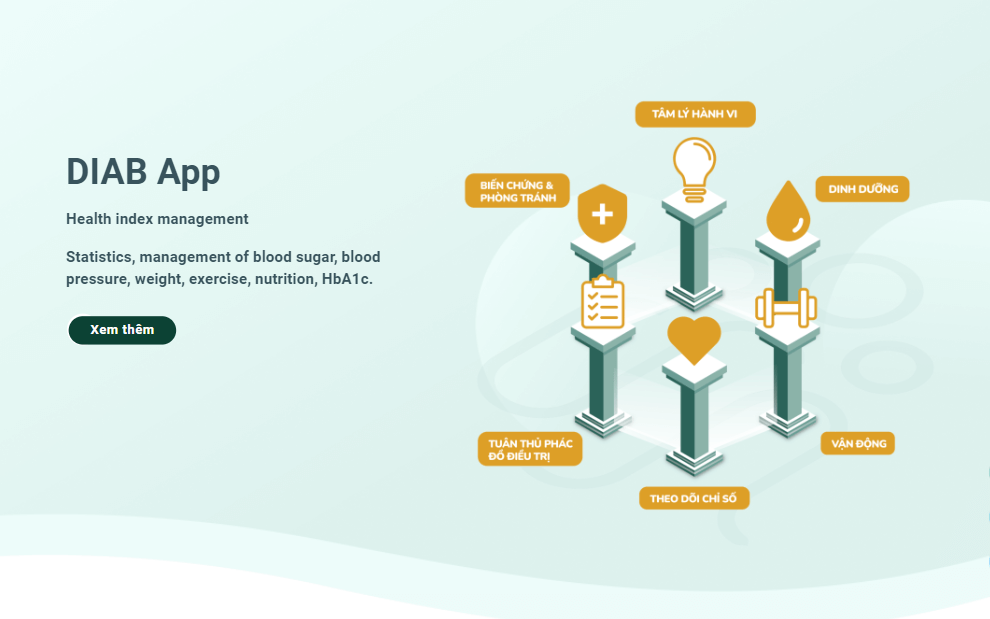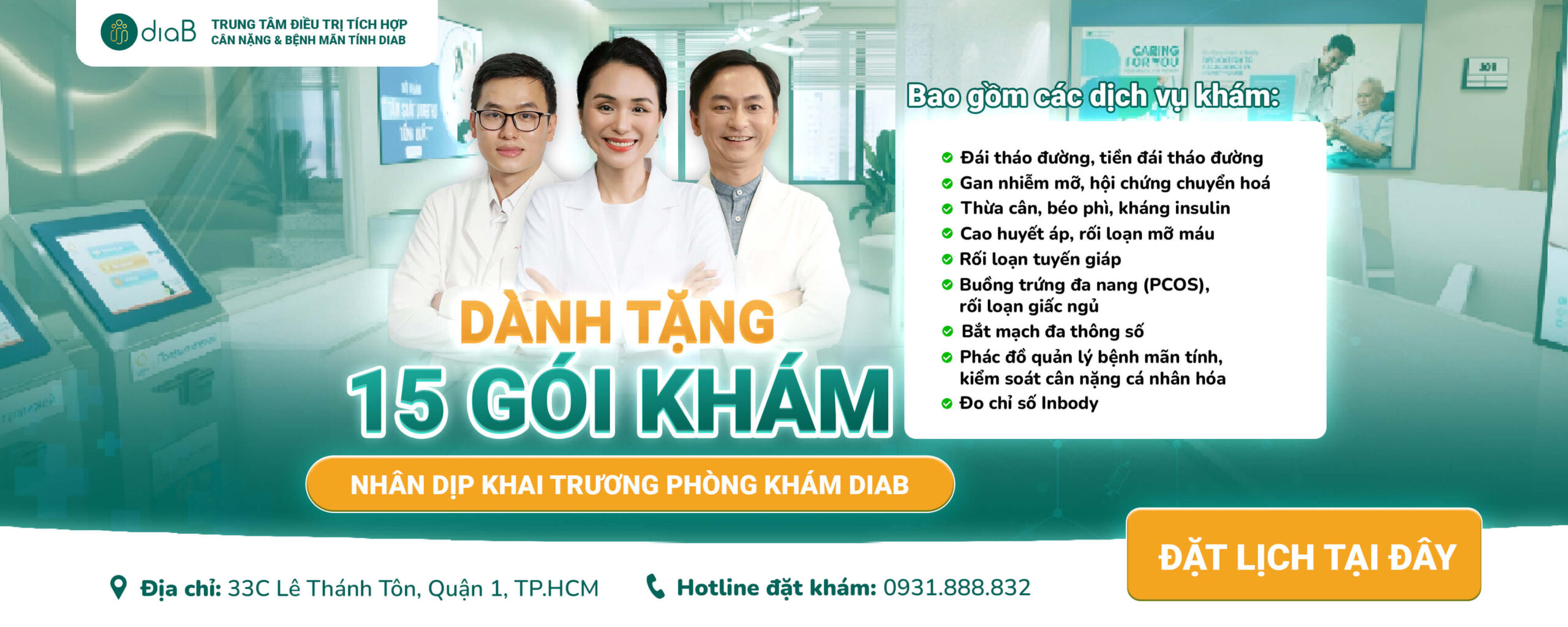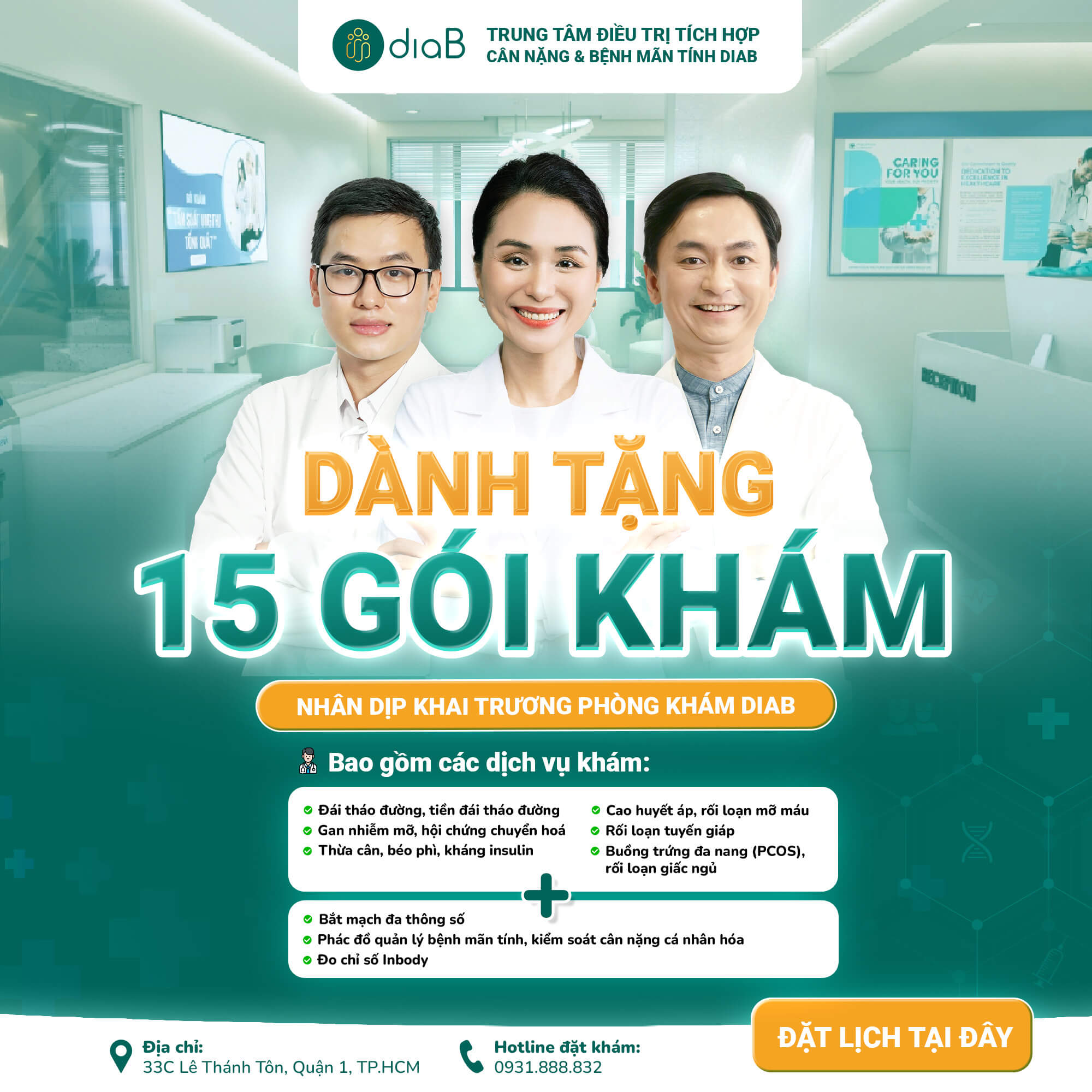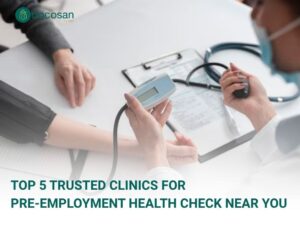It is estimated that over 5 million people in Vietnam currently have diabetes, a 43% increase since just 2019. Diabetes is a chronic condition that affects the body’s ability to regulate blood sugar levels. If left unmanaged or poorly controlled, diabetes can lead to serious consequences that have a drastically negative effect on people’s quality of life.
In this episode, Mrs. Beth Ann Lopez, founder and CEO of Docosan, is interviewing Mr. Luong Nhat, co-founder, and CEO of DiaB, a healthcare platform offering a holistic digital diabetes education and program including lifestyle coaching, testing, and remote support by specialized doctors and lifestyle experts.
Transcription for Transforming Diabetes Management in Vietnam
Mrs. Beth Ann Lopez: Hello and welcome to the Demystifying Healthcare and Vietnam podcast. I’m Beth Ann Lopez, founder and CEO of Docosan. We’re on a mission to make getting healthcare effortless and bring you insights from Vietnam’s top players in healthcare.
In this week’s episode, we’re going to speak with Mr. Nhat Luong, co-founder and CEO of DiaB, a healthcare platform offering a holistic digital diabetes education and self-management program, including lifestyle coaching, remote support by specialized doctors, and lifestyle experts.
So before starting, Nhat worked in senior management roles in healthcare in Vietnam for over a decade, including at Hoan My Medical Corporation, Hanh Phuc International Hospital, and City International Hospital, as well as an external advisor to PWC and Bain & Company. He holds a master’s in finance from Monash University in Australia and an MBA from Reichmann University in Israel. So he’s got a very international perspective.
Nhat, it’s fantastic to be here with you today. And we are going to talk about diabetes, the fastest-growing disease in Vietnam according to the World Health Organization. So, in getting started, Nhat, what is awareness and education like for normal people living in Vietnam around diabetes?
Mr. Nhat Luong: Thank you for inviting me today and for the very nice introduction. You know that in Vietnam, nearly 6 million Vietnamese suffer from diabetes. You know, only 60 percent of the patients were diagnosed, and the remaining 40 percent are undiagnosed. So, it means that some patients even have a full-formed disease, but they don’t understand it, and they suffer, you know, and they ignore that.
The second thing is that patients who have been diagnosed for a long time, more than 10 years, still do not understand the disease and they don’t know how to manage it. So, for example, some very popular indexes like HbA1c measure the average blood glucose over three months, but some patients don’t understand that. And when they receive the diagnostic report, they don’t know what their condition is. So, that is the issue in Vietnam.
Mrs. Beth Ann Lopez: So there’s kind of lower awareness and education levels, and then what is life like for people who actually have diabetes?
Mr. Nhat Luong: So, I think that the patients who suffer from diabetes have a very low quality of life. Some patients, when they were diagnosed, were scared about the disease and tried to maintain very harsh diets. They attempted to abstain from certain foods, even their favorite ones. They continued to abstain from foods that are actually good for their health due to a lack of knowledge and skill in identifying suitable options for their condition.
Another thing is that the patients have to take medication very frequently – every day and every month. They need to visit the doctor for routine checkups. Some days they feel tired of taking the medication and they stop. Suddenly, someday, complications arise and they realize it’s too late for them. They end up struggling with complications like heart attacks, stroke, microvascular issues, and eye abnormalities. The patients have to contend with these challenges every day.
Mrs. Beth Ann Lopez: It’s very serious. And then where do they typically get their education from?
Mr. Nhat Luong: Um, right now they have two channels to get information about their disease. The first comes from the doctor, who they visit the doctor every month. The doctor will explain about that disease and how they can manage their disease at home. But you know that the doctors in the healthcare system in Vietnam have limited time for the patient. For one consultation, they spend nearly three to five minutes with the patient. That’s not enough time for explaining how to make the patient understand their disease.
The second thing is that some physicians don’t have expertise on how to follow up with the patient and expertise on lifestyle changes. Because you know that lifestyle is very important for the patient, including nutrition, exercise, and how to manage their stress. Also, how to identify complications, including chronic and acute complications. So that is a big issue.
Mrs. Beth Ann Lopez: I see. And so, when it comes down to treatment options for these patients, what is a typical course of treatment like in Vietnam for them?
Mr. Nhat Luong: I think there are two types of treatment. The first one is the traditional treatment, which means going to the hospital or clinic to see the doctor, taking medication, and adhering to the medication treatment. The second thing is they focus more on lifestyle change. It means they have to adjust their lifestyle to a healthier one, do more exercise, and keep away from stress and anxiety. This makes their lifestyle healthier.
Mrs. Beth Ann Lopez: I see, and how do they find out about these lifestyle changes and know what is a healthy lifestyle and what’s not?
Mr. Nhat Luong: Because as I mentioned, the doctors have limited time with the patient. So, all the information about lifestyle, they will find on the internet.
I mean, it’s often distorted, right? So, some information just supports individual purposes, like supplement sales, for example. And some solutions are not proven by scientific research.
So I think the patients are like in a maze. They have to find what is the right information for them. They have to filter it themselves.
Mrs. Beth Ann Lopez: I think that’s it. That’s so difficult. So, they’re really kind of on their own to navigate the wild of the internet, disinformation, and kind of short bits of information they get from their doctors. But they don’t have a lot of trusted sources, right? Okay, and so how is the situation about diabetes in Vietnam different from diabetes in other countries?
Mr. Nhat Luong: About the Healthcare System, when a patient in a developed country is diagnosed with diabetes, they have to participate in an educational program, and the insurance will pay for that program.
Mrs. Beth Ann Lopez: Does everyone have insurance?
Mr. Nhat Luong: Because you know, for example, in countries like the US, most people have private insurance or corporate health plans that cover them. For some individuals, especially those without insurance, the government provides Medicare for them. They also pay for that because, you know, education is the best way to support the patient. It helps them manage their disease. When patients understand their disease, their outcomes improve, and that ultimately reduces healthcare costs.
Mrs. Beth Ann Lopez: Absolutely. So, are there many insurance companies in Vietnam that cover educational programs?
Mr. Nhat Luong: No. Even social insurance and private insurance don’t cover preventive care and some educational programs. It’s the same. They don’t cover that.
So, that’s why some healthcare providers don’t have the motivation to offer educational programs for the patient. Some hospitals or clinics try to do that, but they just offer occasional educational classes. These are not routine and not comprehensive for the patients.
Mrs. Beth Ann Lopez: I see. So, it’s still a little bit old school – you just try to treat the symptoms and then the patient is on their own. Otherwise, it’s more like sick care.
Mr. Nhat Luong: They just focus on the diagnostic and the treatment only. Follow-up and education, that’s not their focus right now.
Mrs. Beth Ann Lopez: I see. And so, what do you think is the biggest issue for diabetes patients in Vietnam?
Mr. Nhat Luong: I think they have two important issues in Vietnam. Other things, as I mentioned, that education. The patients don’t have any educational class program to support them in improving their knowledge and skills to manage their disease. The doctors have no time and no expertise to provide support.
The second thing is that healthcare in Vietnam is very fragmented. I mean, the connection between the patient and the doctor is very limited. They only have a few minutes during the consultation, and the doctors are more focused on treatment and diagnostics. They don’t focus on patient follow-up.
Another thing is the connection between the doctor and the specialist who treats some complications. There is no connection and no data sharing. For example, one doctor might prescribe lab tests for the patient. But when the patient sees the specialist, they might still prescribe the same lab tests, even if the results are available from previous tests. This is why healthcare costs become very high.
Mrs. Beth Ann Lopez: It’s duplicated because they’re just not talking to each other or sharing any information.
Mr. Nhat Luong: Similar for the medication too, there are some medication interactions. The doctors prescribe one medication, but the other prescribes something that interacts with the last prescription. So, the outcome is not really effective, and the results are very low, I think so.
Mrs. Beth Ann Lopez: So, a lot of change is needed. And so, Nhat, you’ve now dedicated your life to addressing this disease. Before we get into what diabetes actually does, what is it that motivated you to start addressing diabetes and tackle it as your issue?
Mr. Nhat Luong: I have nearly 10 years of experience working in the hospital. During that time, I saw that 30 to 40 percent of our patients in the hospitals were chronic patients. They visited the hospital very frequently, every month or every quarter, to see the doctor for only three to five minutes and take medication.
We found that these patients had a low quality of life. You can observe that the patients in Vietnam are very different from others. They think and feel very differently, often struggling with obesity and being overweight.
Mrs. Beth Ann Lopez: Because definitely in the West, the perception is that you’re very overweight. People really try to get them onto lifestyle programs to lose weight and manage their blood sugar. But you’re saying that in Vietnam and in Asia, some people might still be thin or at least not obese, and yet have diabetes.
Mr. Nhat Luong: Because you know, they keep very harsh diets and abstain from other nutrition that’s good for health. Even more, I think they have problems with their mental health too. They feel very stressed about the disease and try to manage it by themselves. This makes them just suffer from the disease even more.
Mrs. Beth Ann Lopez: Well, it sounds very stressful. It’s like you’re on your own to figure out how to manage a terrible situation.
Mr. Nhat Luong: So that’s why I wish to find any solution to help the patients live the life they truly aspire to. Not trying to suffer from the disease but to enjoy life despite it. That’s the way we try to build DiaB.
Moreover, my family members also suffered from diabetes. My mom and my grandma, they’ve had the disease for nearly 20 years, and we understand what they feel and uh…
So, what was it like for them going through diabetes? They lived with their disease alone. They never shared about their condition.
Mrs. Beth Ann Lopez: So, they didn’t talk about it with anyone. Why were they so quiet about it?
Mr. Nhat Luong: I think that is the culture. They consider disease as something weird, and they don’t want to share about it. They don’t want to share with anyone, and they try to keep it to themselves.
Mrs. Beth Ann Lopez: I think so. Oh, that almost makes it a little bit scarier and more difficult too, having to really face it on your own. So, there’s a huge amount of unmet needs in diabetes care.
Mr. Nhat Luong: You know that for the Vietnamese young population now, the obesity rate is very high, increasingly so. In the near future, in the next five to ten years, the number of diabetes patients will become more significant.
So, I built this solution for our generation because unhealthy lifestyles will lead to chronic diseases. We are building for the future.
Mrs. Beth Ann Lopez: Absolutely. It’ll, unfortunately, keep growing as people get richer, and unfortunately, lifestyles get worse. So, what is it that DiaB does?
Mr. Nhat Luong: That’s what we try to offer as a solution to the patients. The first one is a sales management and educational program, digitized and empowered by coaching services. You know, it’s very difficult for patients to accept new healthy behaviors. For example, taking up running every day. It’s not something familiar, so Behavioral Science is very useful for Vietnamese patients. We offer coaching services to help them change their behavior. That’s why we try to blend the diabetes educational program from Ada with coaching services to offer the patients.
The second solution we offer to the market is a community. You know, patients feel very lonely and they keep their disease a secret, as I mentioned. So, we try to build a community. We want patients to feel connected and familiar. They can find peers who have suffered similar conditions. They can share their experiences, and how they fight the disease. It makes them feel the disease is not something different.
The third solution, DiaB Tech, that we offer to the market is a mobile application. You know, patients don’t always have time to self-manage the disease. For example, they might forget medication reminders and check clinical indicators like blood glucose, blood pressure, and weight. So, we integrate some medical devices into the application to help patients track their condition frequently.

Mrs. Beth Ann Lopez: What kind of medical devices?
Mr. Nhat Luong: Blood glucose monitor and blood pressure monitor. We integrate them with some super-app health to track activities for the patient, making sure they’re more active.
Mrs. Beth Ann Lopez: Great, great. How is this different from the market?
Mr. Nhat Luong: In the market right now, they have two solutions. The first solution is traditional healthcare, meaning the patient visits the hospital or clinics, sees the doctor, and takes medication.
The second solution is lifestyle intervention, like nutrition. Some nutritionists try to convince the patient that nutrition is the best way to manage the disease.
Mrs. Beth Ann Lopez: What does diabetes do?
Mr. Nhat Luong: So, actually, we offer four solutions to the market.
Mrs. Beth Ann Lopez: When we look into Vietnam, most of the healthcare is still offline. So, what do you currently think about digital platforms and interventions in healthcare in Vietnam?
Mr. Nhat Luong: I think three things make digitalization slow in Vietnam. The first thing is perception. Because Vietnamese perception still believes in physical healthcare. They think that face-to-face is the best way to communicate with the doctor and make the doctor understand their condition. So, they still prefer physical care.
The second thing is tech familiarity. Some older population isn’t familiar with tech and doesn’t feel comfortable using any tech solution. But I think for the next generation, everything will change over the next five years as the young population becomes older. So, tech familiarity won’t be an issue anymore.
Mrs. Beth Ann Lopez: With diabetes, do you see any younger people using your coaching programs or maybe even using them for their parents?
Mr. Nhat Luong: Diabetes now affects younger people, with some patients just 35 years old. They are not spared from diabetes. So, our focus is on the young population. It’s easier to convince them to use technologies to manage their disease.
But that doesn’t mean we ignore the older population. We still support all age groups. We have a large team dedicated to helping the older generation become familiar with the app. We spend time with them and support them with the simplest solutions.
For example, we still help them use easy communication platforms like Zalo. We integrate our solution into Zalo to support them. Because using one platform alone doesn’t work for the elderly. We have to utilize all popular platforms to assist them. For instance, even older Vietnamese people use platforms like Zalo.
Mrs. Beth Ann Lopez: So, I mean, some older people are using a lot of tech in their day-to-day lives. They’re just, I guess, not familiar with new stuff. So, you bring the tech to the user where they’re at instead of making them learn something new.
Mr. Nhat Luong: Yeah.
Mrs. Beth Ann Lopez: What do you think we can do to accelerate the adoption of digital technologies in healthcare in Vietnam?
Mr. Nhat Luong: I think because, on the healthcare innovator side, they try to fix specific issues in the market. You can’t fix everything; you have to choose specific things to fix to make your solution sustainable. I think we have to be patient, both financially and mentally. It means you have to keep your motivation alive.
So, I think healthcare innovators need to come together and find integrated solutions to offer to the market. If we just stand-alone, for example, trying to fix specific things, if we can integrate everything into one comprehensive solution offered to the market, I think we can accelerate the growth of digitalization.
Mrs. Beth Ann Lopez: That’s great! Well, that’s something I’m so excited about with our collaboration between Docosan and DiaB – addressing that fragmentation and making it easier for patients who need diabetes care. Maybe they don’t even know they have diabetes. Making sure they are not alone, finding and connecting with you guys who are the experts, and helping them get better and manage their diseases.
Mr. Nhat Luong: I think when we want to change and redesign healthcare, we have to think about the patient in the whole context. From the day they were diagnosed until when they’re at home fighting the disease when they’re alone. So, we have to look at the full picture of the patient and create a solution that integrates everything. From this integrated solution, healthcare will be changed and redesigned.
Mrs. Beth Ann Lopez: I think so too. Thank you for this absolutely fascinating conversation. It shows that there’s a lot of work to be done in digitizing healthcare, especially in bringing diabetes care and education to the homes of patients. So, thank you for that.
Our listeners can find you on Docosan on LinkedIn, Youtube, and at DiaB.com.vn. The links are in the description. Thanks for listening, and catch you on the next episode of Demystifying Healthcare in Vietnam Podcast at:











